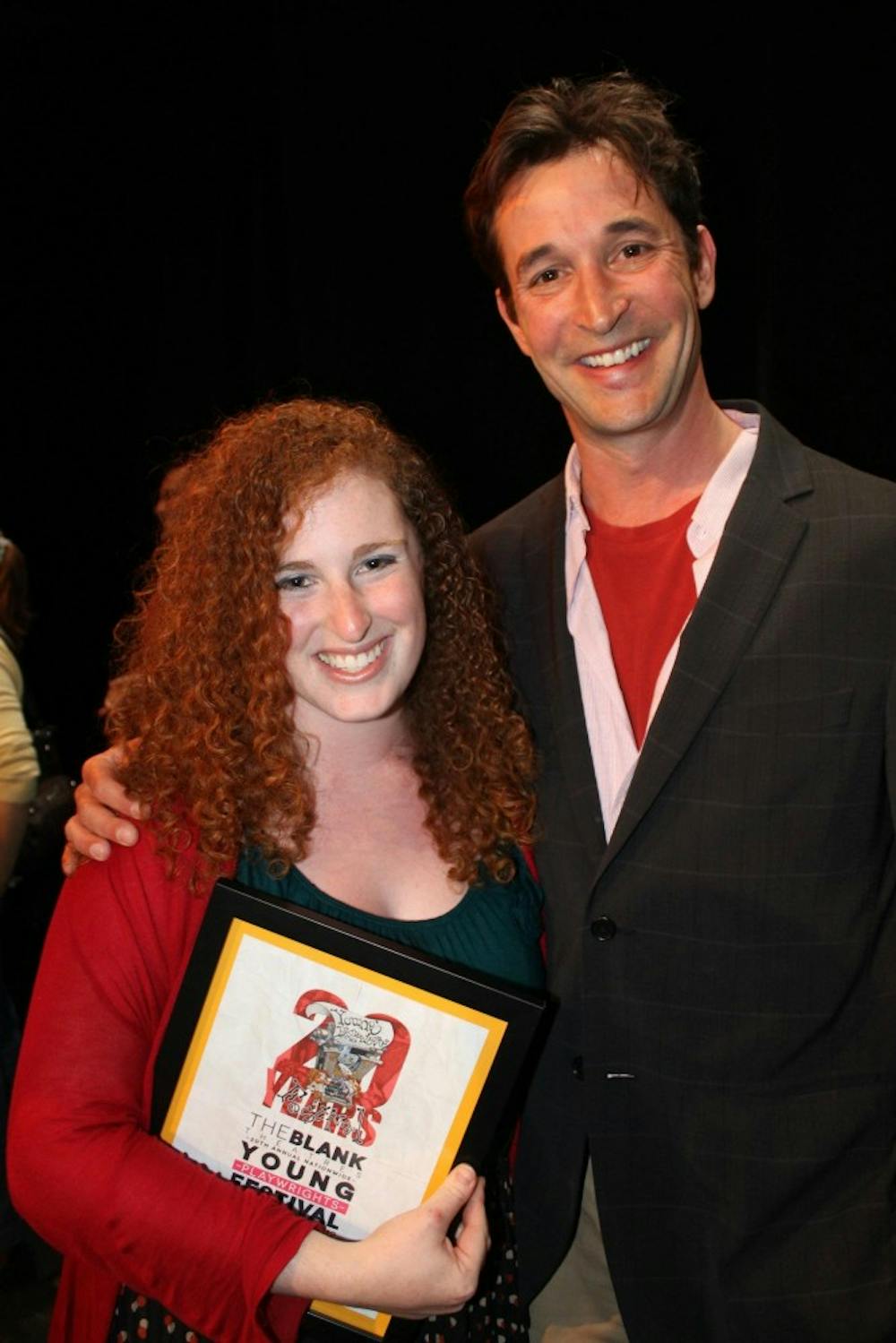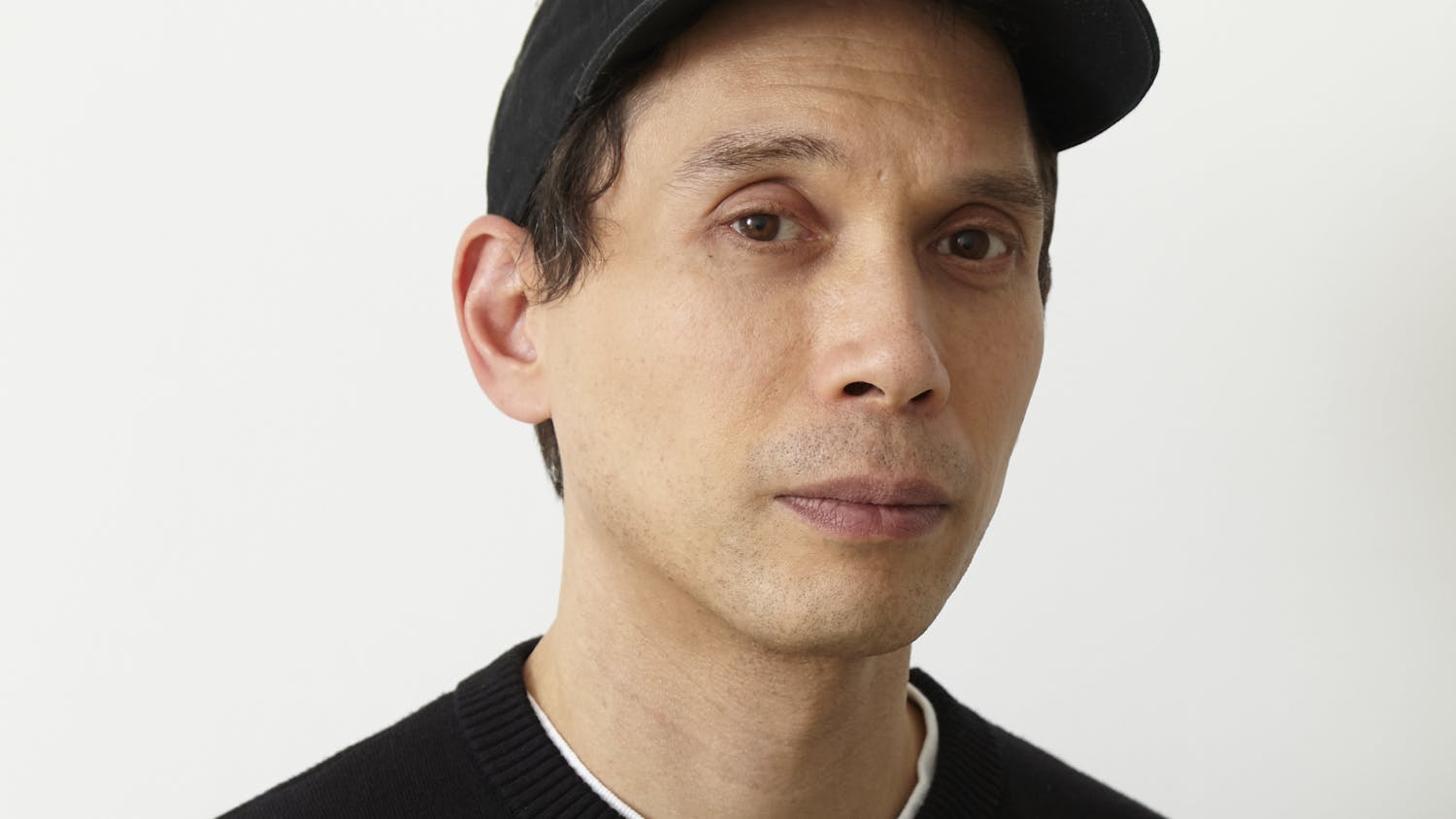Name and Year: Kate Herzlin C’14
Hometown: Rockville Centre, NY
Major: English, Creative Writing Concentration
STREET: How did you become interested in playwriting?
Kate Herzlin: I used to write poems when I was little. My family loves theatre, so at some point when I was nine, I decided to try writing a play. It was called “Hate or Heart,” and it was pretty bad. But then I kept writing plays and got better at it. A few years later when I won my first competition and saw my play rehearsed and performed and watched an audience watch my play, I was hooked.
STREET: Where do you draw your inspiration? Who are your favorite playwrights?
KH: Usually, someone says something funny or intriguing or offensive that sticks with me, and I keep thinking about it, and it turns into characters I want to write. When Paula Vogel came to Penn, she said she writes about things that hurt her, so I drew from that when I wrote my last play. And I kind of love that play a lot, so it ended up being great advice. Playwrights I love…Edward Albee, Tennessee Williams, and Sam Beckett. And he’s not really a playwright, but the composer Stephen Sondheim informs mostly everything in my life all day err–day.
STREET: Tell us about your creative process. How do you start constructing a plot and how do you know when a work is finished?
KH: I think about the characters and the plot for weeks or months before I write anything. Then, I’ll usually stay up really late for two or three nights and write the whole thing and maybe edit a bit later. It’s not really finished till I can put it into a rehearsal room and see what actors do with it and hear aloud what works and what doesn’t.
STREET: Theater is such a collaborative venture on so many different levels. How do you incorporate elements such as lighting, stage direction, auditory effects, costume design etc. into your process?
KH: I write way less stage directions now than I did when I started writing plays. I love working with designers and directors, and I love giving over the work to them. For some plays I feel strongly about a few very specific design elements, but for the most part, professional directors and designers usually know better than me how to bring the piece to life.
STREET: What is the difference between writing a short ten-minute play and a lengthier plot?
KH: For a ten–minute play, I usually think: high stakes, recognizable characters, present a conflict, resolve it, get in and get out. Most of the time when I write a ten–minute play it’s a comedy. That’s by no means a rule for these plays, but if it’s a dramedy or drama or such, I like to spend more time in the play getting to know the characters and developing the conflict and giving it the necessary time for the characters to solve the problem.
STREET: Have you ever tried writing musicals?
KH:I wrote one musical in high school. It’s tough. Really tough. I took several months to write it. It takes a huge amount of planning to get the structure exactly right and to make the songs integral to the plot. Otherwise, it’s awkward. But it was a musical comedy, and I had a blast writing it. I have background in music theory, but I’d love to go back and edit it one of these days with someone who knows more about orchestration and composition than I do.
STREET: What is it like working with professional actors versus students on campus?
KH: I haven’t worked that much with actors on campus in performing plays I’ve written, except in Penn Players 24 Hour Theatre, which was so much fun. But with the theatre I do on campus, we have much longer rehearsal processes than I’ve ever had with professional actors. So at Penn we have time to get to know each other, try lots of different things with the material and experiment with interpretations. When I’ve developed plays with professional actors, it’s mostly about bringing the new work to life, editing, and making it ready to perform after just a two or three–week rehearsal process.
STREET: What is it like seeing your works directed and produced by other people? Have you ever had situations in which your vision conflicted with their interpretation of your work?
KH: It’s always better than what I pictured in my head. There’s nothing like seeing actors and directors care about what I write and work hard to memorize the lines and discuss the best way to bring it to life. I only once had an actor who was kind of a diva and wanted to change lines without asking (which isn’t cool). But almost every actor I’ve ever worked with has been courteous and smart and made me want to keep writing so that I can keep working with amazing people like them.
STREET So Chris Pine starred in one of your plays huh? Give us the deets!
KH: Yes! I was sixteen and like every other sixteen–year–old girl in the US had seen him in “Princess Diaries 2”a thousand or so times. It was 2008, so it was just before “Star Trek” came out, and he became even more famous. He was such a nice guy and was so fun to work with. Also, he was blond at the time. And there was a scene in my play where he didn’t wear a shirt. So that was cool.
STREET: What direction do you see your work taking you in the future? Where do you see yourself in ten years?
KH: I hope to get an MFA in playwriting and continue working in theatre, writing for the stage and perhaps writing for screen. In my dreams, I’m on the writing staff for “Parks and Rec” and have a premiere tonight for my new play being staged at a theatre I love with some amazing director I’ve been working with for years. In ten years, as long as I’m writing characters and my cardboard box has air conditioning, I’ll be happy.







